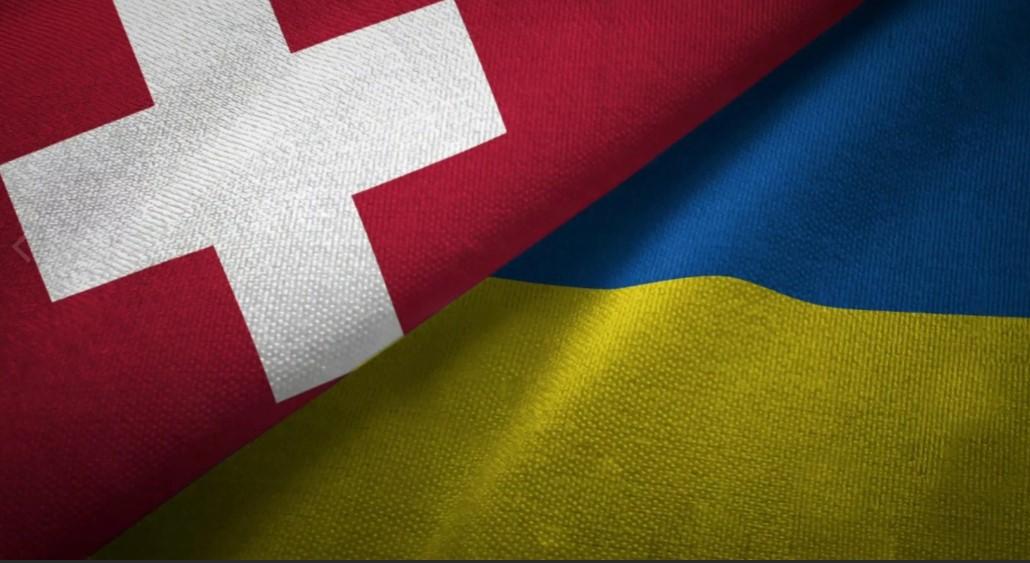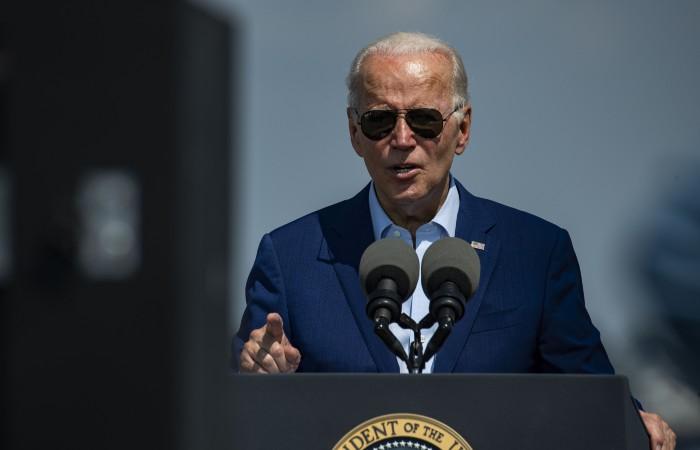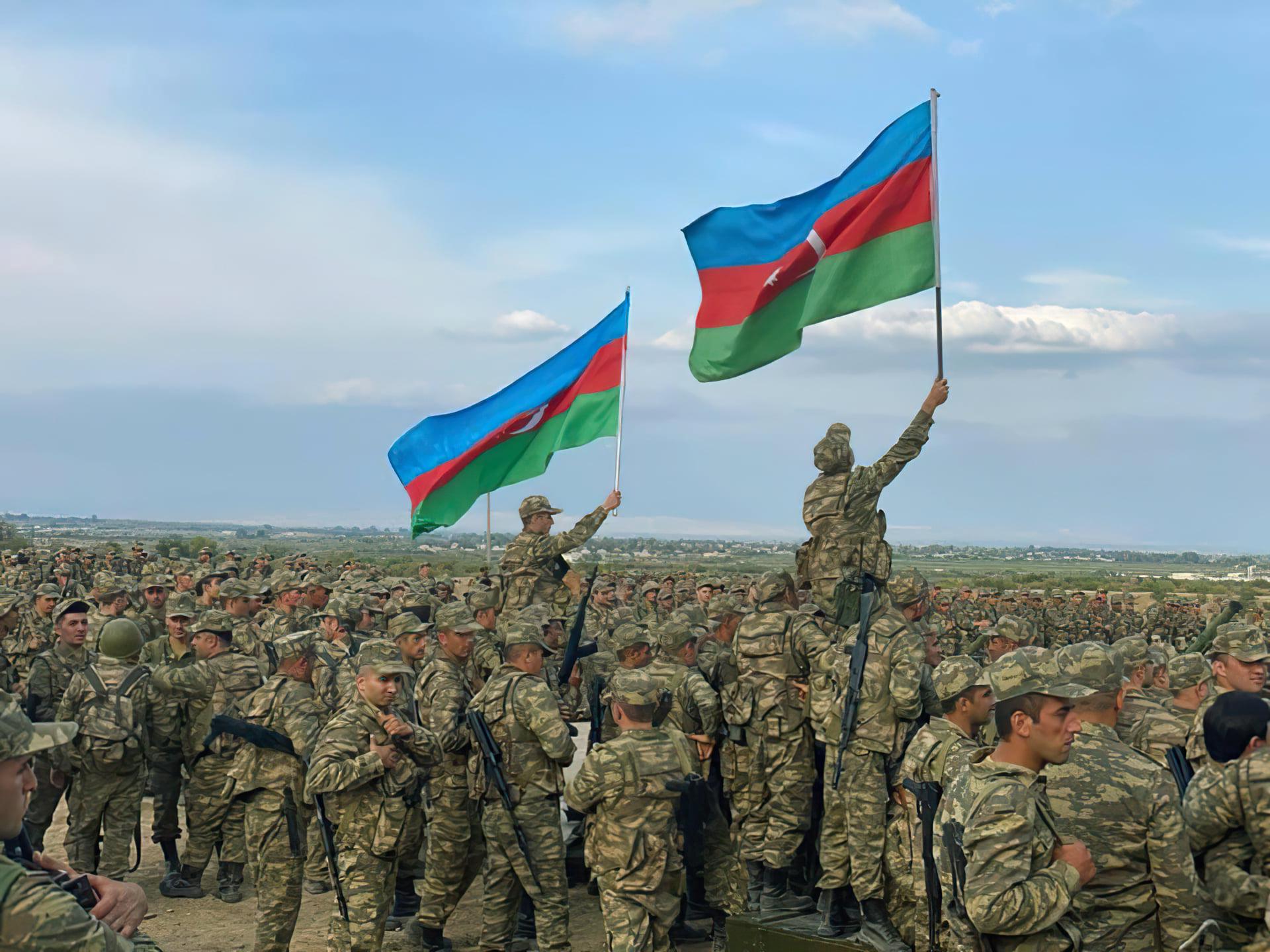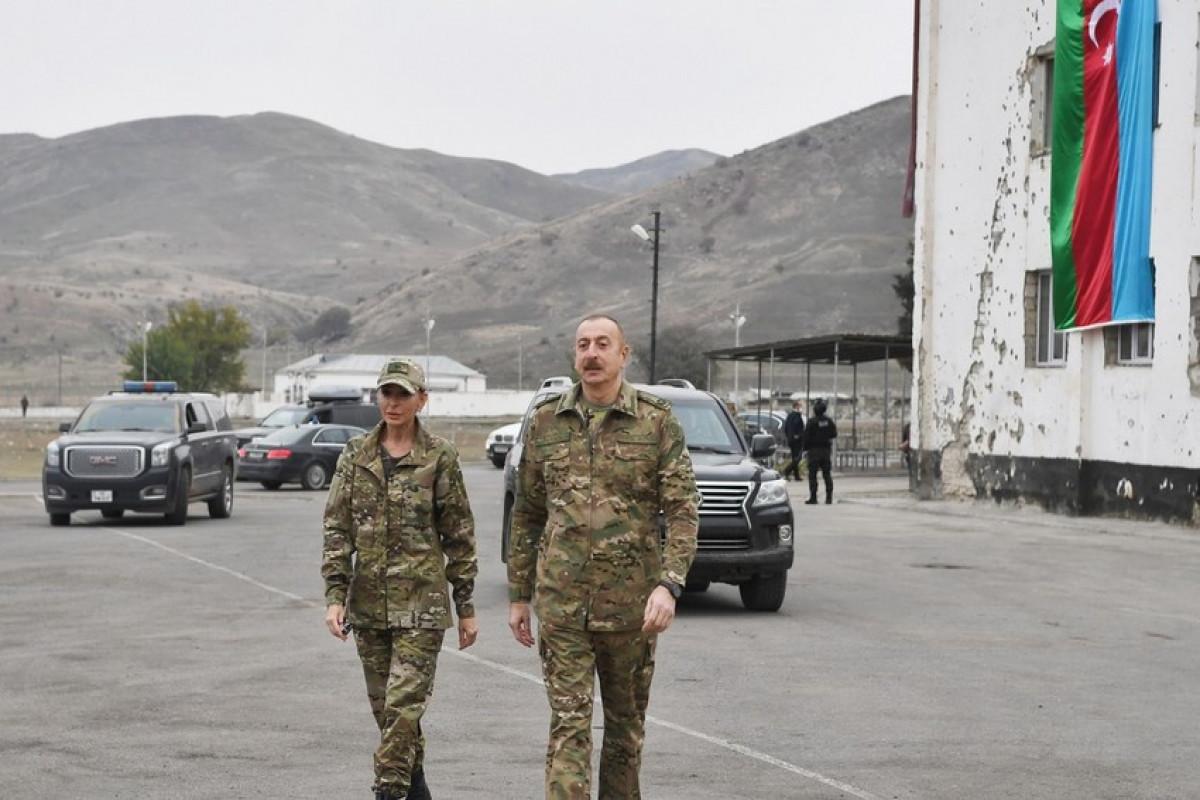Truth behind Ukraine summit and untold story of Azerbaijan's challenges Unmasking Western hypocrisy
This weekend, a conference on Ukraine will convene with the participation of ninety nations.
However, the numbers can be deceiving — most countries will have minimal representation, with notable absences including Russia and China. Instead of focusing on initiating a peace process, the organizers seem to be aiming for a large-scale demonstration ahead of the increasingly likely involvement of the collective West in a conflict with Russia.
It's crucial to note that this event isn't geared towards restoring Ukraine's territorial integrity. Rather, it appears to be an exploitation of the Ukrainian tragedy by global powers. Such conferences aren't typically organized to aid countries facing external aggression; for instance, Azerbaijan never received similar assistance when Armenian nationalists seized almost a fifth of its territory. Thus, Azerbaijan's experience suggests that restoring territorial integrity doesn't necessarily involve participating in such questionable events.
Is this pursuit for peace, or an attempt to globalize the confrontation?
Successful summits usually require extensive expert preparation and numerous consultations. However, this time around, such efforts were notably absent— the conflicting parties didn't even engage in dialogue through intermediaries. The only substantive peace negotiations during the conflict occurred first in Belarus, then in Turkey. Unfortunately, the progress made during those negotiations seems to have been disregarded by the current organizers.
The remarkably short duration of the conference — June 15-16 — and its somewhat unrepresentative nature are also worth highlighting. The Swiss organizers claim that half of the 90 registered states are from "European and North American countries" (predominantly NATO members and small European nations). However, the other half includes not only non-European members of the collective West but also countries critical of it. German Chancellor Scholz emphasized that the Swiss meeting aims not only to kickstart peace talks but also to engage countries from the global South, formerly the Third World. In essence, there seems to be an effort to transform the confrontation with Russia into a "global" one. However, this aspect seems to have already encountered setbacks.
Moreover, when the organizers mentioned that representatives from approximately 45 countries in Asia, Africa, and Latin America would attend, they may have attempted to mask this setback. Yet, this modest figure includes about a dozen states that are part of the collective West (such as Japan or South Korea). Therefore, the global South, which was supposedly the target audience for recruitment into the war against Russia, appears to be ignoring the summit. Additionally, 70 out of the 160 invited countries declined to attend, and the organizers opted not to invite another 30 countries.

However, the devil is in the details: who exactly will represent the participating countries? Surprisingly, there is a notable unity in approach among all categories of countries outside European NATO, which is actually the driving force behind the forum. Joe Biden, the President of the United States and leader of the collective West, will not be attending the summit, prioritizing domestic issues. Even more striking is the case of Australia, the most significant member of the collective West, which received an invitation to the summit as early as May 3 but chose to remain silent until the last minute. Only after a strong collective diplomatic push from EU representatives in Canberra did Australia decide to send a delegate, and at that, only in early June. The chosen delegate? The country's Minister for Superannuation, Bill Shorten.
The situation is even more dire in the Global South. While it may not be surprising that Luiz Inacio Lula da Silva, a prominent critic of the West and former President of Brazil, will be sending only an ambassador instead of attending himself, the absence of the staunchly pro-Western President of Argentina, who openly expressed support for Zelenskyy, is symptomatic.
Taking a clear-headed look at the situation, it becomes evident that the conference in Switzerland will be a one-sided endeavour that will only delay the arrival of peace. It will not offer genuine support to Ukrainians in defending their state but will rather serve as an opportunity for more influential political forces in the West to exploit their tragedy.
Some of these influential forces are clearly identifiable. The summit is being promoted by certain factions within the EU-NATO, notably European Commission President Ursula von der Leyen, who is aggressively pushing for her reappointment by advancing increasingly radical initiatives (such as measures to silence dissenting countries or to escalate military actions against Moscow). Even after her party's recent victory in the European Parliament elections, she boldly declared that "the majority in the European Parliament will be pro-European and pro-Ukrainian."
Just before the Switzerland event, the European Commission under von der Leyen rushed through the decision to initiate negotiations for Ukraine's (and Moldova's) accession to the EU, arbitrarily claiming that it already meets all the necessary criteria. The Financial Times ambiguously suggested that the war had expedited the EU enlargement process, with a hint of sarcasm, as they watched the EU Titanic on a collision course with Russia.
Advocating for the underprivileged
Given the composition of this organizing body, the forthcoming forum may, at best, produce a few symbolic declarations that carry little weight. According to Ukrainian reports, it became evident during the preparatory phase that securing support for Zelenskyy's "peace formula" — effectively a "Weimar" surrender of Russia under international oversight — would not be feasible. In response, Kyiv proposed allowing each country to selectively endorse elements of the formula. Some even floated the idea of scrapping the final document altogether, a subtle manoeuvre to suggest global support for Zelenskyy's "peace formula" merely by virtue of participation.
As discussions unfolded, the summit hosts and other Western nations opted to downplay the "formula" altogether, inserting a provision in the draft statement that participants would be guided by the formula and other peace proposals. The formula itself was omitted from the final draft, leaving behind only principles related to food and nuclear security, the release of prisoners, and the potential invitation of the Russian side in the future!
It may indeed be possible to push this agenda forward, creating the illusion of widespread support for Ukraine. However, such pseudo-support is perilous due to its deceptive nature. In essence, the West is merely "talking in favour of the underprivileged," while the rest of the world perceives the Russian-Ukrainian conflict not as a fundamental struggle for "peace based on principles/traditional values" or even for the preservation of Ukrainian sovereignty, but rather as another peak of hypocrisy and cynical politics on all fronts.
Recent events continue to reinforce this perception of the "peace summit." During a meeting with Macron in Paris on June 8, Biden vocally highlighted Russia's threat to the EU "following Ukraine" and emphasized the importance of Paris aligning with American interests. Additionally, just a day earlier, Biden announced the delayed release of a new $225 million aid package for Ukraine. This comes on top of previous aid announcements from the Pentagon, including a $275 million package on May 24 and a $400 million package on May 10. Such levels of aid are undeniably substantial. NATO Secretary-General Stoltenberg recently stated that NATO members have allocated approximately €40 billion per year to Ukraine so far, indicating a significant increase in needs.
However, despite this financial support, Biden has opposed the deployment of any NATO troops to Ukraine, even to train the Ukrainian military. Simultaneously, the NATO secretary-general admitted that the proposal to establish a €100 billion aid fund for Ukraine over the next five years had failed on the same day.

The EU-NATO countries openly acknowledge that the war provides an opportunity to rejuvenate their industries through military contracts. Just recently, Dutch Defence Minister Kajsa Ollongren disclosed that the Netherlands and Denmark will contribute €400 million to the Swedish fund for producing BMPs for Ukraine. However, a significant portion—180 out of 230—will be manufactured in the Netherlands, benefiting a key Dutch company. Interestingly, such expenditures can potentially be reimbursed through the EU's "Peace Fund," an off-budget entity with a profoundly cynical name.
This narrative surrounding the peace summit brings forth other reflections. The West is orchestrating such gatherings, asserting the notion of a unique circumstance in the case of the Russian-Ukrainian conflict. They argue that this uniqueness necessitates a global response and, specifically, the convening of a summit. Yet, this is not the first instance of such a situation: the seizure and occupation of Azerbaijani territories by Armenian forces fundamentally parallels what has transpired in eastern Ukraine over the past decade.
The West did not convene any international conferences against Armenian aggression. Despite having ample time—almost three decades—the Azerbaijanis never waited for the Minsk Conference, initially slated for the summer of 1992, nor for any explicit call from the West for Armenia to halt its invasive policies!
Observing this and comprehending the imperialist tendencies of Western powers, who backed Armenian nationalists, the Azerbaijani leadership initiated efforts to address the Karabakh separatism issue through military and political means, relying primarily on its capabilities. Those who criticize Baku for opting for such a tactical approach should examine the lacklustre record of international community mediation and Western collective efforts between Azerbaijan and Armenia since the early 1990s. They should contrast it, at the very least, with the statistics on the numerous Azerbaijani citizens of all ethnicities killed and displaced from their homes due to the aggression of Armenian nationalists. Not to mention the wasted years for Azerbaijan's development, the fragmentation of the South Caucasus region, and the disregard for fundamental principles of law and justice — the West had more than sufficient grounds to hold Armenian extremists in power accountable and demonstrate their commitment to constructing a "rules-based world."

The West has offered negligible support to Azerbaijan, even in circumstances identical to those faced by Ukraine. However, for Ukraine, it spares no effort, driven solely by its interests. The effectiveness of Western aid to Ukraine in safeguarding its sovereignty has been evident over the past decade. Indeed, the resolution to Ukraine's challenges has only been feasible through the Azerbaijani approach. However, under the current circumstances, there is scarcely a political faction in Ukraine willing to adopt it.
Is Ukraine capable of embracing the "Azerbaijani approach"?
Those who suggest that the predicaments of Azerbaijan in the past and Ukraine in the present are incomparable in magnitude—portraying Azerbaijan as contending with a "small Armenia" while Ukraine grapples with a colossal Russia—are overstating the case. During its conflicts with Azerbaijan, Armenia leaned on support from Russia, France, the United States, and, at times, even Iran. It managed to muster substantial resources from the global Armenian diaspora. The fact that Yerevan has now lost the backing of Russia and Iran, and its ties with the diaspora are strained, is largely attributable to the policies of the Azerbaijani government over the past decade. Thus, in both the Azerbaijani and Ukrainian contexts, the challenge has been defending against superior enemy forces.
The essence of the struggle for the restoration of territorial integrity, a principle realized by the Azerbaijani leadership since Heydar Aliyev, but seemingly unrecognized in Kyiv, revolves around prioritization. It involves prioritizing the defence of one's people and nation over ideological allegiance to specific blocs and relying on internal strength rather than seeking external aid packages.
The crucial step in achieving this is to establish order within the state, beginning with the construction of a functional legal framework and accountability mechanisms for political parties, and extending to the oversight of foreign-funded entities within the so-called "civil society" and media — entities upon which the West often relies. Under the guise of combating corruption and safeguarding rights and freedoms, these entities have frequently undermined the state and hindered the establishment of legal structures necessary for a thriving economy. The consolidation of the Azerbaijani state began with the restoration of order.
Conversely, in Ukraine during the early 2000s, the trends were diametrically opposite: activists, civil society organizations, and political parties funded from abroad actively undermined the state and its economy. During this period, there were dissenting voices in Ukraine that cautiously warned of the chaos. Prominent publicist Mykola Ryabchuk even authored a book on "The Dilemmas of the Ukrainian Faust", torn between the development of "civil society" and state-building. However, these voices were soon drowned out by the fervour of the Maidan movement.
As a result, amidst escalating patriotic rhetoric, the Ukrainian state increasingly lost its capacity to defend itself, leading to internal divisions. It became evident that maintaining independence and sovereignty requires a robust military-industrial complex, a well-equipped army, and efficient police and state security, rather than mere discussions about cultural uniqueness and language.
Notably, in the 1990s, Ukraine possessed all these elements — the military-industrial complex, army, scientific and technological centres, and state security, making it the most advanced among all former Soviet republics, even surpassing Russia. Azerbaijan, in contrast, inherited far fewer resources from the Soviet Union. However, while Ukraine fixated irrationally on joining the Western bloc, Azerbaijan focused on bolstering its export capabilities, enhancing air defence systems, and modernizing its armoured forces.
By the mid-2010s, the dynamics had shifted significantly: Baku began exerting military influence on Armenia, while Kyiv struggled to withstand mounting pressure from Russia. Throughout this period, the West often criticized Azerbaijan’s development trajectory while lauding Ukraine’s progress. Ultimately, Azerbaijan methodically prepared itself and successfully restored its territorial integrity between 2020 and 2023, whereas Ukraine continued to lose territory.

History has unequivocally demonstrated which path leads to the restoration of territorial integrity and the strengthening of statehood, and which path inevitably leads to defeat. Escaping the confines of Western normative guidelines, restoring order within the country, and embarking on the struggle relying on our capabilities rather than promises of summits: this is the only viable course of action. Whether it involves joining or departing from NATO, the EU, the CSTO, the EAEU, or any other organization, such decisions should serve as tools to achieve specific goals aligned with the country's interests. Membership in these blocs or alliances with global powers like the USA or Russia should never supersede the interests of the country when governed by leaders accountable to their people.
Indeed, leaders in some former Eastern Bloc countries or the Third World often forget this principle. The West, on the other hand, imposes the opposite notion as an axiom—that even a subordinate form of membership in Western structures is worth any price. However, placing hopes on summits or pursuing membership in various organizations solely for the sake of membership inevitably leads to disaster. The commitments made by the West within these structures ultimately serve its interests, much like how 'international law' operates only when it aligns with Western objectives.
History is replete with examples, from the West's prolonged support of Karabakh separatism and Armenian expansionism in the Caucasus to the Budapest Memorandum's unfulfilled security guarantees for Ukraine and the Minsk agreements regarding the regions in eastern Ukraine.








